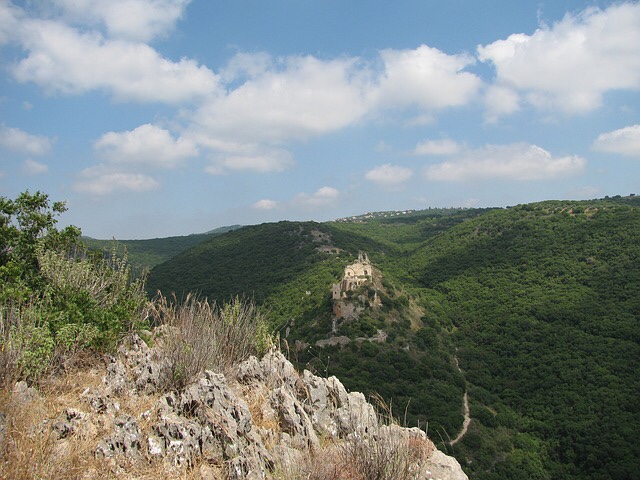HIGHLIGHT
Colossians 1:5–6 (ESV): Of this you have heard before in the word of the truth, the gospel, 6which has come to you, as indeed in the whole world it is bearing fruit and increasing—as it also does among you, since the day you heard it and understood the grace of God in truth,
EXPLAIN
It has now been roughly 30 years since Christ’s death and resurrection and Pentecost (see Introduction: Timeline). The gospel has indeed spread from Jerusalem into Syria, Asia Minor, Greece, Italy, and likely into Egypt, North Africa, and Persia as well.
(Colossians 1:6, ESV Study Bible)
The gospel arrived to the Colossians through Epaphras, not Paul, who never visited that city. Thus, this church is evidence of Paul’s strategy of reaching key cities, from whom the gospel then spread to the surrounding countryside and smaller cities, towns, and villages.
APPLY
As Paul celebrated the growth of the Gospel, so we should also celebrate the spread and power of the Good News in our world. Our text suggests three reasons Paul celebrated the Good News in regard to Colossae Church.
First, Paul celebrated the fact that “the gospel … has come to you.” As the apostle to the Gentiles, Paul was keenly aware of the fact that the Gospel first came to the Jews, then the Gentiles. The Gentile believers were grafted into God’s chosen people. The Gentile Christians were once not a people, but now had become a holy nation, a “peculiar” people, saints of God.
This truth may seem less important to the 21st century believer as the Church for many generations has been made up more by Gentiles than Jews, who as a whole rejected Christ as their Messiah. But this should not be so. Rather, we should be astounded by the fact that God’s grace reached us. Yes, even those of us who grew up in the church and joke about attending church before we were born should recognize the great privilege – the great grace – we have been afforded that the Gospel came to us.
Especially when we see a world darkened by sin where the Gospel has not yet come with its liberating light of freedom like it has for us, or has been rejected and the people suffer under increasingly oppressive darkness, we should rejoice that the Good News has come to us – we who were truly unworthy, but favored by God’s grace.
Furthermore, we should remember Paul’s warning in Romans 11:
18 do not be arrogant toward the branches. If you are, remember it is not you who support the root, but the root that supports you. … 21 For if God did not spare the natural branches, neither will he spare you. 22 Note then the kindness and the severity of God: severity toward those who have fallen, but God’s kindness to you, provided you continue in his kindness.
Second, Paul celebrated that “the gospel… in the whole world it is bearing fruit and increasing” (Colossians 1:5–6). A danger we face is having a narrow perspective of God’s work in our world. Even in our postmodern world in which information gushes out like water from a fire hose, a world that is glocal, having nearly immediate awareness of events halfway around the world, yet approaching such a world from one’s local concerns, sometimes we may not recognize the onward advance of the Good News. Or, we may despair the darkness of sin that we experience so keenly in some areas of the world that we forget or discount the power of God’s Truth.
Yes, we are discouraged when fellow believers fail us through hypocrisy, when high-profile leaders reject their faith or are found to have fallen from grace, and when our own struggle against sin becomes extra difficult. But we must not discount the truth of Christ’s words, “… I will build my church, and the gates of hell shall not prevail against it” (Matthew 16:18).
The Gospel is increasing in the world and bearing fruit. The Church is expanding. Sinners are being saved, believers are being sanctified, God is not dead, and Jesus is coming soon!
Third, Paul celebrated that “the gospel, … is bearing fruit and increasing—as it also does among you, since the day you heard it and understood the grace of God in truth” (Colossians 1:5–6). God is at work in you and me!
The children’s song, “He’s Still Working on Me”, comes to mind. Yes, God created the universe in six days, but God’s process of making saints out of sinners like you and me is an ongoing process. We are saved by grace through faith when we commit to trust in Jesus and God redeems us from sin, regenerates us – making us a new creation, adopts us into his family, and sanctifies us – making us righteous in his sight.
But there is much growth in grace that remains. We need cleansing from inbred sin and to be fully filled by the Holy Spirit. And… even after that second work of grace, there is still much growth in grace needed as the Holy Spirit sanctifies us, conforming us to the will of God, producing in us his fruit. We truly must, as Paul wrote Philippi Church, “work out your own salvation with fear and trembling” (Philippians 2:12).
Thus, we should celebrate the fact, the hope, and the promise that the Gospel is still at work in us, bearing fruit and increasing our faith in Jesus, our love for all the saints, and our hope in heaven. Our struggle against the enemy of our souls may be stiff, but God is at work in us. God’s grace still provides, and we can live confident of victory in Jesus!
RESPOND
Heavenly Father, I celebrate your Good News that came to me, is still expanding across this globe, and is at work in me. Thank you for the Gospel and its power to change lives. Continue to mold and make me according to your will. Amen.










